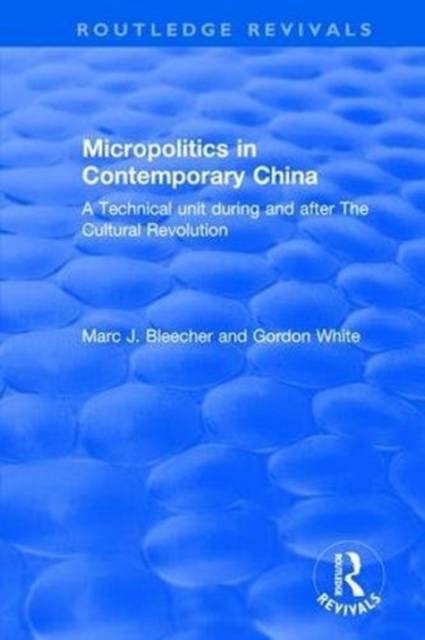
Je cadeautjes zeker op tijd in huis hebben voor de feestdagen? Kom langs in onze winkels en vind het perfecte geschenk!
- Afhalen na 1 uur in een winkel met voorraad
- Gratis thuislevering in België vanaf € 30
- Ruim aanbod met 7 miljoen producten
Je cadeautjes zeker op tijd in huis hebben voor de feestdagen? Kom langs in onze winkels en vind het perfecte geschenk!
- Afhalen na 1 uur in een winkel met voorraad
- Gratis thuislevering in België vanaf € 30
- Ruim aanbod met 7 miljoen producten
Zoeken
Omschrijving
This title was first published in 1980. One of the most prevalent and significant issues facing socialist countries is the role of intellectuals. In the poorer countries like China, this has presented itself with particular acuity in the relationship of scientists and technicians to the process of socialist economic modernization. Since the Cultural Revolution has come to a close, its impact on China's intellectual life-- especially on scientists, technicians, and the development of scientific and technical work-- has been the subject of lively inquiry in China. In turn, this inquiry has provided a major focus for reevaluating the Cultural Revolution as a political movement and as a way of dealing with the inequalities and bureaucratic inefficiencies that have arisen and will continue to arise in the centrally planned Chinese economy during a period when rapid economic growth and modernization have been given the highest priority. This monograph intends to address some of these issues by presenting a detailed case study of a Chinese technical unit over the period from 1966 to 1974.
Specificaties
Betrokkenen
- Auteur(s):
- Uitgeverij:
Inhoud
- Aantal bladzijden:
- 150
- Taal:
- Engels
- Reeks:
Eigenschappen
- Productcode (EAN):
- 9781138045132
- Verschijningsdatum:
- 19/07/2017
- Uitvoering:
- Hardcover
- Formaat:
- Genaaid
- Afmetingen:
- 156 mm x 234 mm
- Gewicht:
- 390 g

Alleen bij Standaard Boekhandel
+ 580 punten op je klantenkaart van Standaard Boekhandel
Beoordelingen
We publiceren alleen reviews die voldoen aan de voorwaarden voor reviews. Bekijk onze voorwaarden voor reviews.









